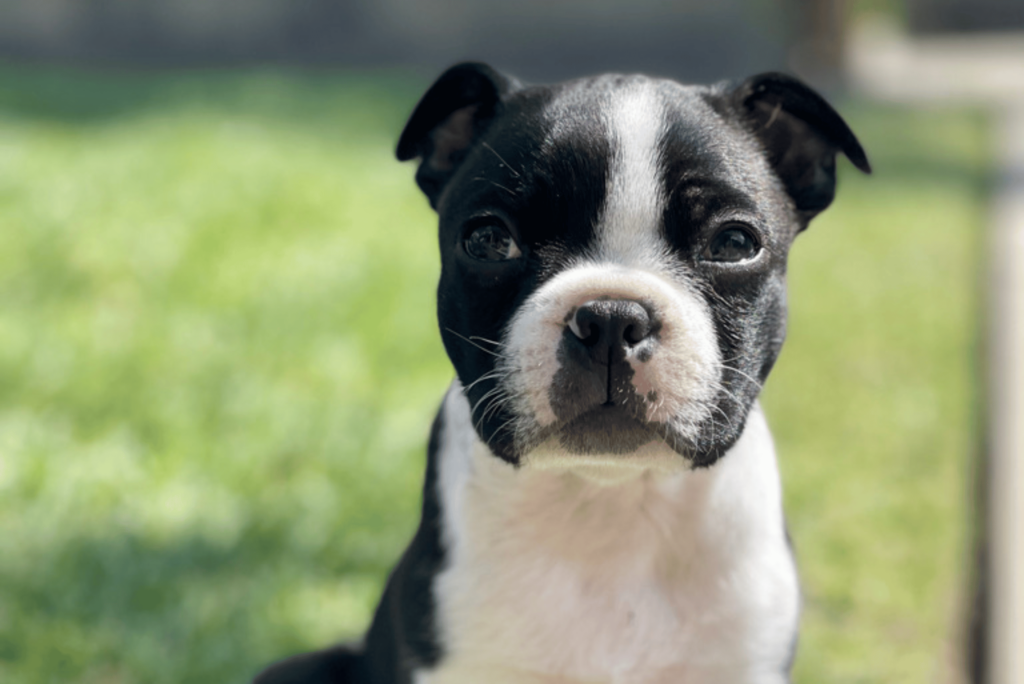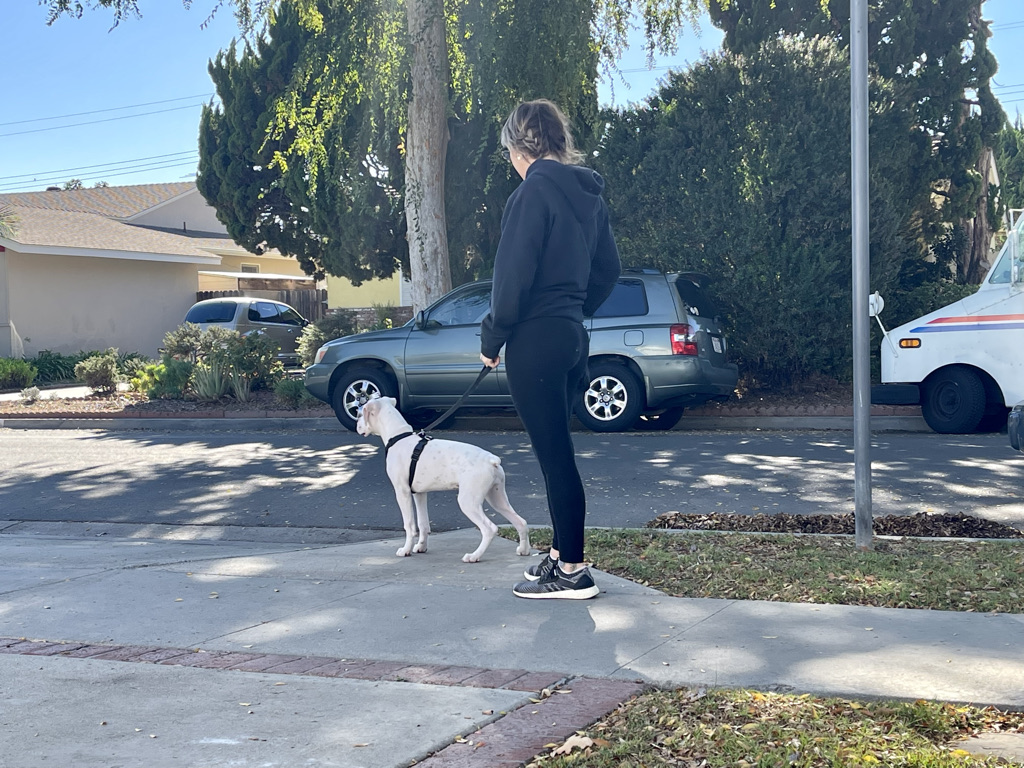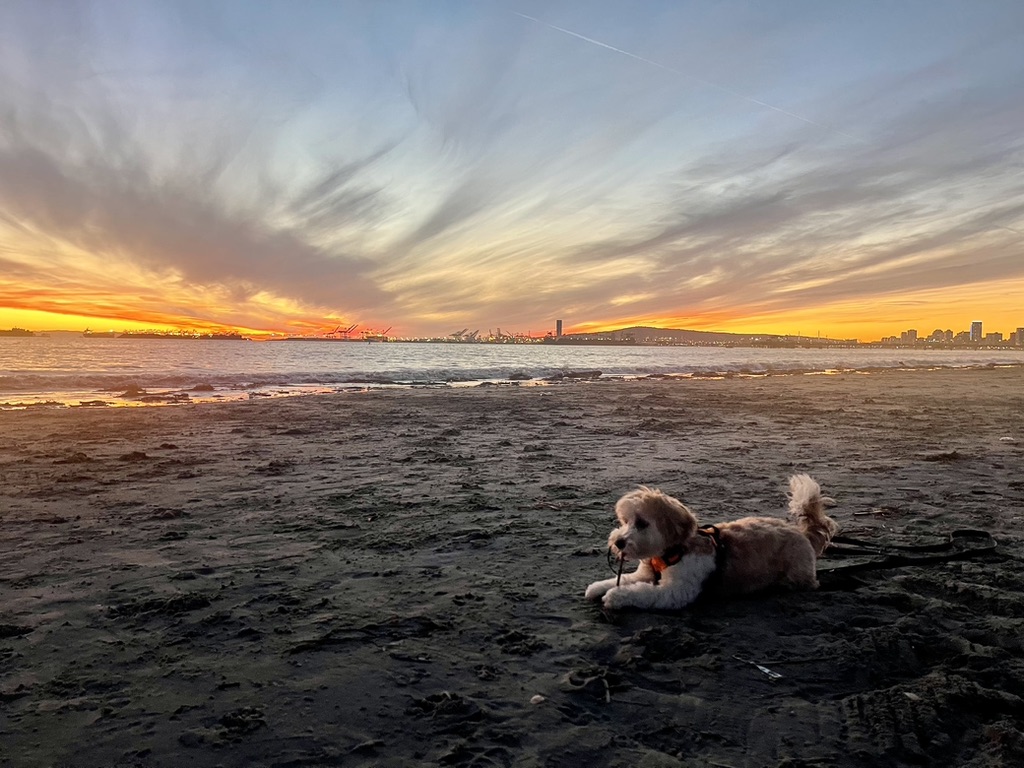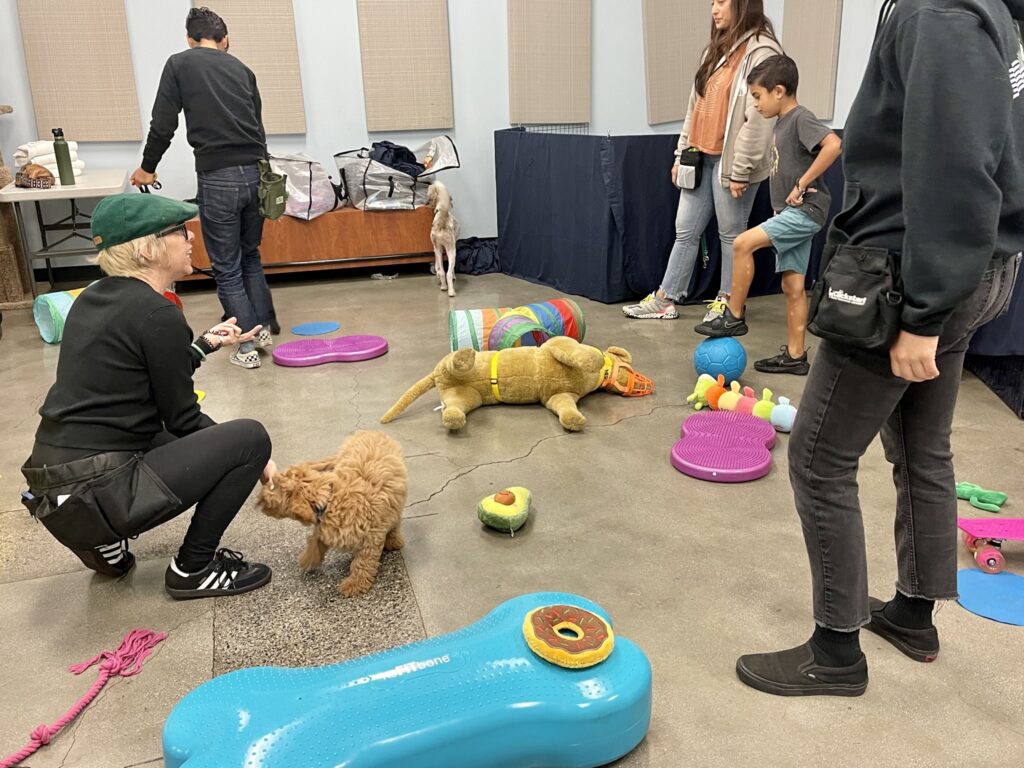Training Your Puppy in Long Beach, CA: Everything You Need To Know
New puppy guardians have a big question: “when is the right time to start training?” The answer to that is… right away! Everything is new to your puppy, and their brain is growing and developing. Now is the time to help teach them! Of course, a dog is never too old to train, but these early days are the best for establishing clear communication.

Long Beach is one of the most dog-friendly cities and is home to over 100,000 dogs! There are all kinds of meet-ups and dog-friendly events that you can enjoy with your puppy. And speaking from experience, these things are 100% more enjoyable when you have a solid relationship with your dog!
We have some tips as you start puppy training, plus recommendations for parks and trails in Long Beach that are great for leash training and getting acquainted with the outside world. Let’s get started!
How to Start Puppy Training
Training teaches boundaries that help your puppy navigate the human world. If this is your first experience with a puppy or any dog, you may not be sure how to get started, what a training session should look like, or even what you should focus on first. Here are some tips for reasonable expectations and setting your puppy up for successful training.
- Puppies have short attention spans. Work with your puppy’s abilities, and keep sessions short. About 3 minutes is a good place to start with puppies around 8 weeks old. You can do this a few times a day. Always remember: we’re looking for engagement and learning, not an exhausted and distracted puppy.

- Keep all interactions positive. You want your puppy to trust you, and punishing them for not understanding what you want does not lead to trust or learning. Instead, reward them for showing your desired behavior, and stay patient. If you feel yourself getting frustrated, it’s time for you to take a time out. Yelling, getting angry, or being overly forceful will scare your puppy and set your training back.
- Did we mention rewarding the behavior you want to see? You can do this outside of a training session. Keep small treats on you so that if your puppy is doing something you want to continue to see, you can quickly and easily reward them. Walking next to you while on leash? Treat. Sitting calmly while you walk in the door? Treat. This will encourage them to repeat this behavior, eventually becoming a habit for them.
- Socialization is an important part of training. Especially for puppies who are just learning about the world, it’s important for dogs to be able to interact with the environment, other dogs, and humans. An early puppy training class or Puppy Kindergarten, if you’re in the Long Beach area, lets your puppy socialize in a clean setting at the age where socialization is most important.
- Start slowly. Every puppy learns at a different pace and has different abilities, be sure to make steps smaller if your puppy is having trouble. Wait until your puppy demonstrates skill mastery before moving on to a new one. If you start a new skill and your puppy seems to backslide, you may need to step back and repeat the basics.
- Focus on management, socialization, handling, relaxation training, and bite inhibition. These are the skills you’ll want your pup to have mastered as they move into adolescence.
- We train humans, not animals. You need to train yourself too! Successfully training your puppy means training yourself to be consistent, patient, and calm. You must learn to read your dog’s body language to understand and communicate with your puppy best.
Training Your Puppy in Long Beach
Until your puppy is fully vaccinated, you must be careful with outings. But this doesn’t mean you should keep them at home. Socialization is incredibly important at an early age. So, to take them out and about, consider getting creative by carrying your puppy, using a carrier, joining a Puppy Kindergarten class, or wheeling a wagon around the neighborhood. While you do this, be sure to keep them away from any unknown or unvaccinated dogs.

Ready for a pro tip? Resist the urge to take your pup to crowded dog parks during these early days. Instead, take it slow, and work with your puppy on leash training in the home, so they can learn without distractions or pulling your arm off.
A quiet park or trail helps your puppy learn what to do when meeting other dogs and people out and about without overwhelming them. They’re also great for sniff walks, which help your puppy get used to smells and provide mental enrichment. If you’re new to Long Beach or just unfamiliar with the city’s park and trail system, we’ve recommended three dog-friendly trails where you can walk your puppy.
Dog-Friendly Places for Training Your Pup in Long Beach
- El Dorado Park- This is our number one suggestion and our go-to spot when training with in-person clients!
- Bluff Park is a gentle walk with sea breezes and perfect views. Your dog can learn about sharing the trail with joggers and other dogs.
- Dominguez Gap Wetlands- This trail is a great place to get your puppy accustomed to the smells and sounds of nature. Opened in part to restore natural habitat, the wetlands project is great for a quiet dog walk and teaching your puppy to ignore distractions, like birds suddenly flying from a bush.
- Willow Springs Park- With 11 acres of restored wetlands, this park trail features native plants and a quiet spring. Practice your loose leash walking on the trail while enjoying nature and a peek into Long Beach’s natural history.
You’ll also want to check out Puppy Kindergarten right here in Long Beach. Classes take place every Saturday and are a wonderful and positive way to socialize your pup without overstimulating them!
A Final Word
The most important thing to remember is… you don’t need to muddle through the training process on your own. Work with a trainer who has experience in positive reinforcement training and can help set you and your puppy up for success. In addition to Puppy Kindergarten, Underdogs Long Beach offers private in-person classes and virtual sessions. Check out all services here to find the right fit for you.
Looking for more resources to help you navigate puppyhood? Check out:
